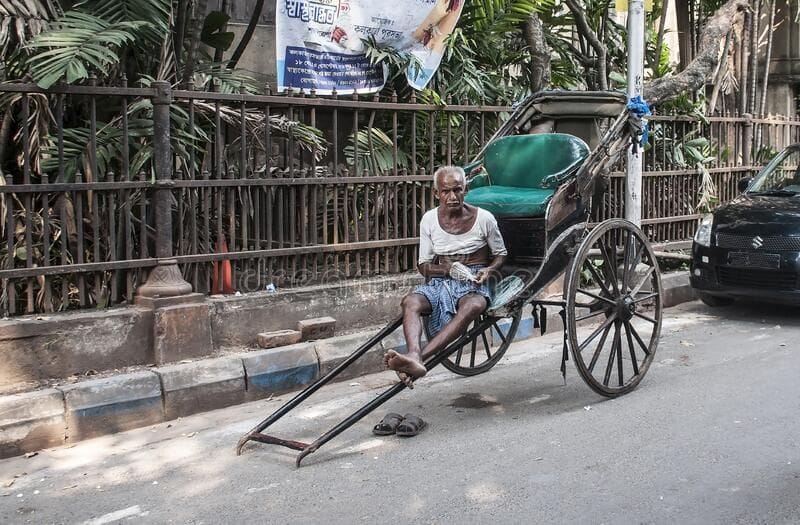
The Supreme Court in a three-judge ruling banned hand-pulled autorickshaws in Matheran near Mumbai. The court said it is a blatant violation of Article 23 of the Constitution. The scope of article 23 was read broadly as per the case of People of India for Democratic rights v. Union of India, holding that even if the forced labour is paid, it will still be considered as forced labour and article 23 intends to abolish every form of forced labour.
Factual Matrix
The interlocutory application was filed by TN Gdavarnman Thirumulpad which was regarding forest protection wherein the top court issued a mandamus. In 2022, the court permitted the State of Maharashtra to introduce eco-friendly e-rickshaws and clarified that if permitted, the e-rickshaws would primarily be available to only handcart pullers as compensation for their loss of livelihood.
Court’s Opinion
The court opined that it’s been 78 years since independence, and 75 years since the Constitution has come into force, but the fact that handcart pulling still exists is incredibly violative of human rights and a stain on the Constitution’s promise of social and economic justice. The court noted that people engaged in this compulsion because they did not have any other source of income. However, permitting such a practice goes against the basic concept of human dignity.
For any queries or to publish an article or post or advertisement on our platform, do call at +91 6377460764 or email us at contact@legalmaestros.com.
The court also relied upon decisions given in Azad Rickshaw Pullers Union v. State of Punjab, wherein the court said that the practice of hand-pulled rickshaws is inconsistent with the preambular promise of social justice, and People of India for Democratic Rights v. Union of India, wherein the SC gave a wide interpretation to Article 23 and stated that non-payment of minimum wages to laborers amounted to forced labor.
As for the issue of loss of employment, the court observed that it is the duty of the state to ensure that the scheme of e-rickshaws be rolled out soon. The court directed the government to also rehabilitate the hand-rickshaw pullers in Matheran and take inspiration from the e-rickshaw policy in Kevadia, Gujarat. The court also warned that the lack of funds cannot be considered as an issue in executing this scheme.
Conclusion
The very reason that Matheran has hand-pulled rickshaws is because Matheran is an ecological hotspot, due to which automobiles are banned. But inhumane practices cannot continue to exist in order to accommodate the tough logistics of travelling in the region, or the government’s lack of funds which comes in way of said logistics. The court has made a bold decision in banning hand-pulled autorickshaws already, which puts the government in a tough spot and requires them to take quick actions to compensate for the loss of livelihood of hundreds of rickshaw pullers; and the only way to compensate is through granting them another form of livelihood which is sustainable and environment friendly.
For any queries or to publish an article or post or advertisement on our platform, do call at +91 6377460764 or email us at contact@legalmaestros.com.




![Research Assistantship @ Sahibnoor Singh Sindhu, [Remote; Stipend of Rs. 7.5k; Dec 2025 & Jan 2026]: Apply by Nov 14, 2025!](https://legalmaestros.com/wp-content/uploads/2025/11/Gemini_Generated_Image_s0k4u6s0k4u6s0k4-768x707.png)
![Karanjawala & Co Hiring Freshers for Legal Counsel [Immediate Joining; Full Time Position in Delhi]: Apply Now!](https://legalmaestros.com/wp-content/uploads/2025/11/Gemini_Generated_Image_52f8mg52f8mg52f8-768x711.png)